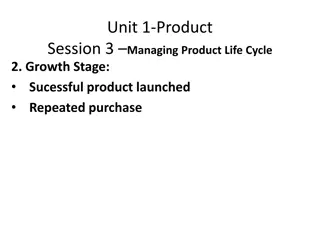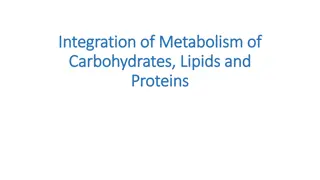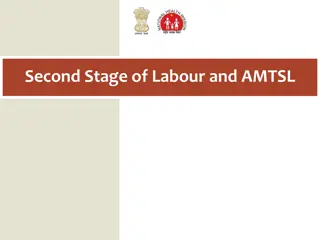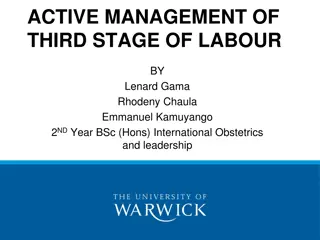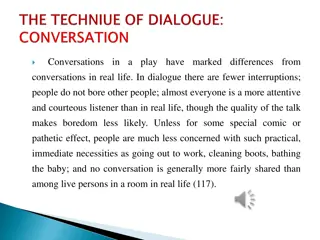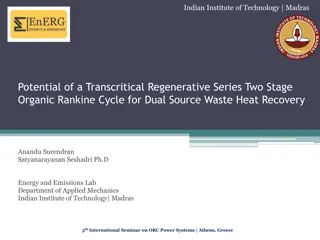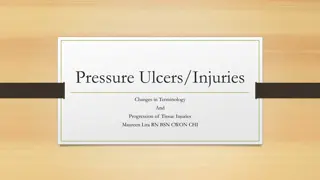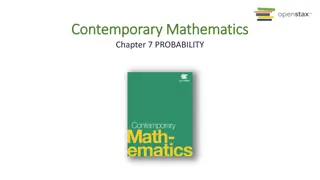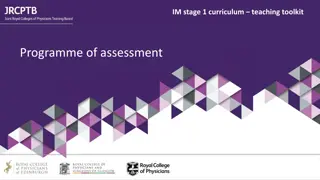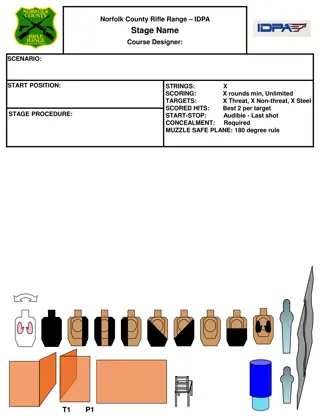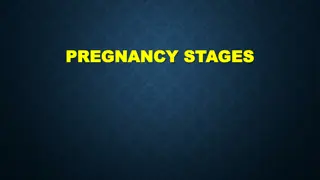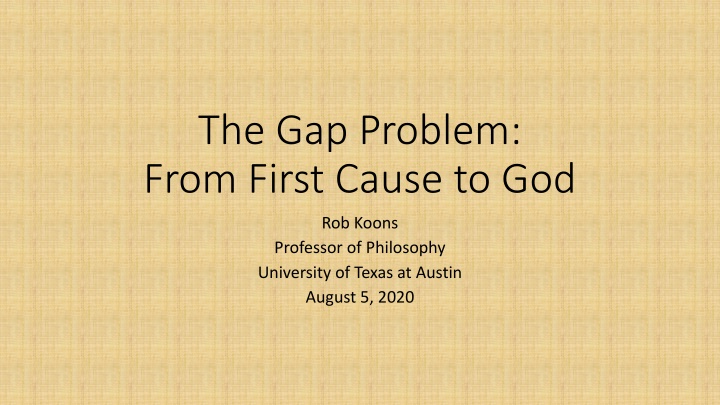
Reaching the Ultimate Cause: The Gap Problem Explored
Delve into the philosophical exploration of the Gap Problem, moving from the concept of a First Cause to the existence of God. Various arguments—from contingency to Kalaam and Aristotelian arguments—are presented, leading to the assertion of a wholly necessary cause. The concept of beings of pure act and the immaterial, non-physical nature of the first cause are discussed, emphasizing the mind-like characteristics of these causes in the creation of the Cosmos.
Download Presentation

Please find below an Image/Link to download the presentation.
The content on the website is provided AS IS for your information and personal use only. It may not be sold, licensed, or shared on other websites without obtaining consent from the author. If you encounter any issues during the download, it is possible that the publisher has removed the file from their server.
You are allowed to download the files provided on this website for personal or commercial use, subject to the condition that they are used lawfully. All files are the property of their respective owners.
The content on the website is provided AS IS for your information and personal use only. It may not be sold, licensed, or shared on other websites without obtaining consent from the author.
E N D
Presentation Transcript
The Gap Problem: From First Cause to God Rob Koons Professor of Philosophy University of Texas at Austin August 5, 2020
Stage 1: Reaching a First Cause The Argument from Contingency I: there is a necessary being (or beings) that is/are the cause of all contingent beings The Argument from Contingency II: there is a necessary fact that is the explanation of all contingent facts. Kalaam Argument: there is a timeless/eternal being (beings) that is/are the ultimate cause of all temporal things (including time itself) Aristotelian Argument from Motion (First Way): there is a timeless/eternal being (or beings) that is/are the first cause of all motion/change. Koons/Pruss 2020: there is a supernatural cause (simple and unbounded) of all natural facts.
Wholly Necessary First Causes Definition. A fact is wholly contingent = it is contingent and it is not partially grounded by any necessary fact. Definition. A fact is wholly necessary = it is necessary and it is not partially grounded by any contingent fact. Given the right causal principle and principle of causal separation, we can infer that the Cosmos (the totality of contingent facts) has a cause that consists entirely of wholly necessary facts.
Beings of Pure Act Definition of Pure Act. A being x is a being of pure act = every intrinsic property p of x is such that it is essential to x that it have p. Causally effective wholly-necessary facts must consist in the eternal existence of beings of pure act. Alternatively, we can reach beings of pure act from the Kalaam argument or the Aristotelian argument: a timeless being must be insusceptible of change. Only beings of pure act are timeless.
Immaterial/Non-Physical/Non-Spatial Principle of Slight Differences. If x has intrinsic property P, and Q differs from P only by degree, then there is some property R that also differs from P only by degree, and it is possible for x to have R. Any physical or material entity has some property P such that there is a property Q that differs from P only by degree: namely, a property of bounded spatial location, or bounded temporal duration, or mass, or charge, or velocity, or acceleration, or momentum, or energy, etc. Consequently, no being of pure act can be material or physical. Hence, no first cause of the Cosmos can be material or physical. God does not fill space or occupy time if He did, there would be properties He could have that would differ only by degree from his omnipresence or everlastingness.
Mind-Like Causes We have only one model of concrete, immaterial entities: minds. We have to suppose that the first causes are mind-like, and that their mode of causing the Cosmos is analogous to intentional creation (like the creation of fictions or images by the mind). The cause of the Cosmos consists of facts about immaterial, mind-like entities, and the causal relation between the cause and the Cosmos is analogous to the creation of intentional objects. The selection of one physical world over another cannot depend on any quasi-physical tendencies in the First Cause, so it must depend on the fitness for existence (the value) of the effects, which requires an intelligent choice by the First Cause.
At least one Being with Unlimited Power Assume NB1: There exists exactly one or more necessary beings NN, such that the obtaining of each actual contingent fact in the actual world is causally explained by a free act of one of the NN. Contingency of Limitation. If an entity x has limited causal capacity, then the exact limits of that capacity are matters of contingent fact. Lemma 1. Given NB1 and Contingency of Limitation, there must exist at least one member of NN with unlimited causal capacity. Proof: any limitation must be caused by the action of one of NN. An infinite regress is impossible, so this must terminate in a necessary being with unlimited causal power.
The Unity of God Definition: Real Distinctness. x and y are really distinct = x and y are concrete entities and there is some contingent real relation between x and y. Corollary. The entities involved in the cause of the Cosmos are not really distinct from each other. Proof. All of these entities are beings of pure act, which have no contingent real properties. Principle of Unity. If some things are not really distinct from each other, then they constitute collectively a single real thing. Corollary. There is a single real thing whose existence, nature, and causal powers constitute the cause of the Cosmos. Let s name this thing God .
Unity of God additional reasons Ockham s Razor. Don t hypothesize multiple First Causes when one will do. Unity of the world, especially of its design (e.g., fine tuning). The impossibility of the existence of two beings of unlimited power. See Jerome Gellman s paper in Religious Studies (2000).
Jerome Gellmans Argument Gellman assumes that there is exactly one being responsible for all the contingent facts in each possible world (although not necessarily the same being in all possible worlds). Let Nec be the being that is responsible for the contingent facts in the actual world. Gellman proves Lemma G: whatever power Nec has in the actual world, Nec has essentially. Gellman then proves that there is one necessary being responsible for all contingent facts in all worlds.
Gellmans Proof Suppose for contradiction that there are two necessary beings, Nec1 and Nec2, each responsible for all the contingent facts in worlds w1 and w2, respectively. Gellman defines the condition of one necessary being s having veto power over another in a world: Definition. Necessary being x has veto power over y in world w iff x can prevent y from determining which contingent truths obtain in w. Does Nec2 have creative power over Nec1 in w1? Two horns of the dilemma: Yes, or No
First Horn If Nec2 has veto power over Nec1, Nec2 chooses (contingently) not to exercise this power over Nec1 in w1. Since Nec1 is responsible for all the contingent facts in w1, this means that Nec1 has the power to prevent Nec2 s using its veto power over Nec1. But this contradicts Nec2 s having such power: it can t have power over Nec1 in w1 if Nec1 has the power in that world to determine whether it exercises this power.
Second Horn So, Nec2 does not have veto power over Nec1 in w1. Can it have veto power over Nec1 in other worlds? If it does, its having such veto power would be a contingent fact in those worlds. But Lemma G1 establishes that each necessary being has its power state essentially This means that Nec2 does not have veto power over Nec1 in w2. But Nec2 is supposed to be responsible for every contingent fact in w2, including Nec1 s contingent inactivity there. But this would require Nec2 to have veto power over Nec1. Contradiction.
The Simplicity of God Principle of Simplicity. If a thing x is composite, then x has some proper part y such that x and y are really distinct. Corollary. God is simple (non-composite).
First Cause must be Necessary Of Itself Based on the second part of Aquinas s Third Way (S. Th. I q2 a3). Two kinds of necessary beings: beings necessary through another and beings necessary of themselves. There must be some being necessary of itself. Suppose for contradiction that all necessary beings were necessary through another. This would result in an infinite regress of dependency.
A Scotus-Inspired Argument for the Uniqueness of God Suppose there were two distinct things that are necessary of themselves (with underived necessity). They would share the same nature. The distinctness of things that share the same nature must have some ground. Whatever grounds the distinctness of two things must be at least partly responsible for the existence or the possibility of one of them. Nothing is even partly responsible for the existence or possibility of something that is necessary of itself. So, there can be only one thing necessary of itself.
Some Thomistic Arguments God is identical to His own nature God is identical to His own act of existence God is identical to absolute Existence God has every possible perfection
God is identical to His own Nature If a thing x has a nature y, then y is in some sense a cause or ground of x s being as it is. So, if God has a nature, then that nature is in some sense a cause of God s being as he is. There is no cause of God s being as he is. So, God does not have a nature. Every concrete thing either has a nature or is identical to its own nature. So, God is identical to His own nature.
God identical to His own Nature, 2 If God were distinct from his nature, then it would be possible for something else to share that nature. It is impossible for anything other than God to have God s nature. So, God is identical to his nature
God Identical to His own Existence 1. Assume for contradiction that God s nature and the fact that God exists are distinct. 2. God s nature and the fact that God exists cannot be metaphysically independent of each other. 3. If they are not independent of each other, then either the nature depends on the fact, or the fact depends on the nature, or both depend on some third thing. 4. God s existence cannot depend on anything. 5. So, God s nature must depend on the fact of God s existence. 6. It is impossible for the existence of something to be metaphysically prior to its nature. 7. So, God s nature and the fact that God exists are identical. 8. So, God is identical to the fact that God exists.
God as Absolute Existence 1. 2. 3. Every act of existence is either absolute or qualified. If an act of existence is qualified, it is qualified by something other than itself. If an act of existence is qualified by something other than itself, it is qualified by the nature of the things whose act of existence it is. If something s nature is identical to its own act of existence, then that act of existence is not qualified by anything other than itself. So, if something s nature is identical to its own act of existence, that act of existence is absolute. God s nature is identical to his own act of existence. God s act of existence is absolute. If something s act of existence is absolute, then it has every perfection that could possibly exist in an unqualified form. So, God has every perfection that could possibly exist in an unqualified form. 4. 5. 6. 7. 8. 9.
Gods Perfect Goodness All imperfection is a matter of privation: of something s being less than it is supposed to be. Since God is a being of pure act, He is necessarily everything He is supposed. So, God is perfect. If A is better than B, then A s existence encompasses more perfection than A s does. Since God s existence is absolute, God is the best possible being.
Gods Innocence God s wisdom and knowledge are perfect, so He knows all possible reasons for acting. Since God s being is unqualified, He is not intrinsically biased toward any action. Therefore, He can only respond to the fitness of an action (the reasons for so acting). God is necessarily perfectly happy, so His reasons for acting can make no reference to His own interests. Hence, all of His actions are disinterested. If an action is perfectly rational, informed, unbiased, and disinterested, then it is innocent.

